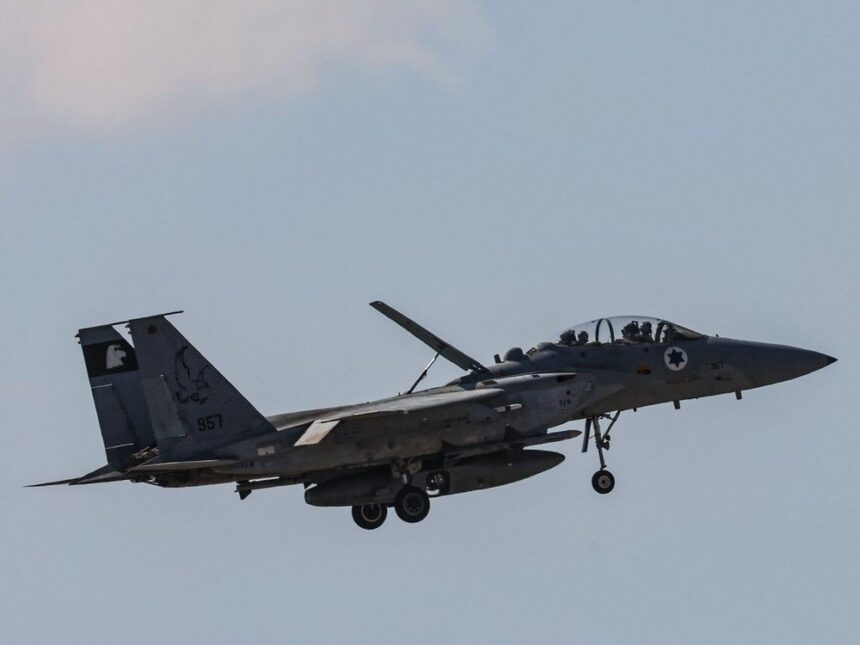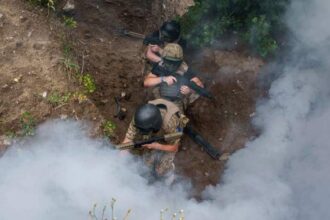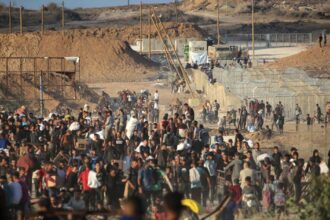In a significant escalation of regional tensions, Israeli forces have conducted a precision airstrike in Damascus, killing a senior Iranian Revolutionary Guard commander allegedly connected to the October 7 Hamas attack on Israel. The operation, confirmed by multiple regional sources, targeted Abbas Nilforoushan, deputy commander of the Quds Force—the elite foreign operations arm of Iran’s Revolutionary Guards.
The Israeli Air Force strike hit a residential building in the upscale Mazzeh neighborhood of Damascus late Wednesday evening, according to Syrian state media. The attack reportedly killed Nilforoushan alongside several other high-ranking Iranian military officials who were meeting at what intelligence sources describe as a covert command center disguised within a civilian structure.
“Nilforoushan was directly responsible for orchestrating attacks against Israeli citizens and for strengthening terrorist networks throughout the region,” stated an Israeli military spokesperson in a rare acknowledgment of cross-border operations. “His elimination represents a significant blow to Iran’s terrorist infrastructure in Syria.“
The Quds Force, which Nilforoushan helped lead, has been instrumental in expanding Iran’s military influence across the Middle East, particularly in Syria, Lebanon, and Gaza. Intelligence reports suggest Nilforoushan had been operating in Syria since 2016, coordinating between Iranian forces, Hezbollah, and various Syrian militia groups aligned with Tehran’s interests.
Iranian officials have vowed retaliation, with Supreme Leader Ayatollah Ali Khamenei issuing a statement describing the attack as “cowardly aggression that will not go unanswered.” The Iranian Foreign Ministry has summoned representatives from several Western nations to protest what it calls “Israeli state terrorism supported by Western powers.”
The timing of the strike appears particularly significant, coming amid heightened regional tensions following weeks of escalating exchanges between Israel and Hezbollah along the Lebanon border. Military analysts suggest the operation indicates Israel’s determination to disrupt what it perceives as an “axis of resistance” coordinated by Iran against Israeli interests.
“This represents a major intelligence and operational achievement for Israel,” explains Dr. Michael Stephens, Middle East security specialist at the Royal United Services Institute. “Targeting a commander of Nilforoushan’s seniority sends a clear message that Israel is willing to strike at the heart of Iran’s military leadership structure, regardless of location.”
The strike also highlights the ongoing shadow war between Israel and Iran that has intensified in recent years, with operations ranging from cyberattacks to targeted assassinations. Since 2019, at least six senior Iranian military commanders have been killed in operations widely attributed to Israeli intelligence services.
Syrian officials have condemned the attack as a violation of their sovereignty, though their response remains limited by the complex power dynamics in a country where multiple foreign forces maintain a military presence. The Syrian Observatory for Human Rights reports that at least eight people were killed in the strike, including the Iranian officials and their Syrian security detail.
As regional powers calculate their next moves, the critical question emerges: Will this targeted killing trigger a wider conflict in an already volatile Middle East, or will strategic restraints prevent a full-scale confrontation between Israel and the Iran-backed alliance stretching from Tehran to Beirut?


















